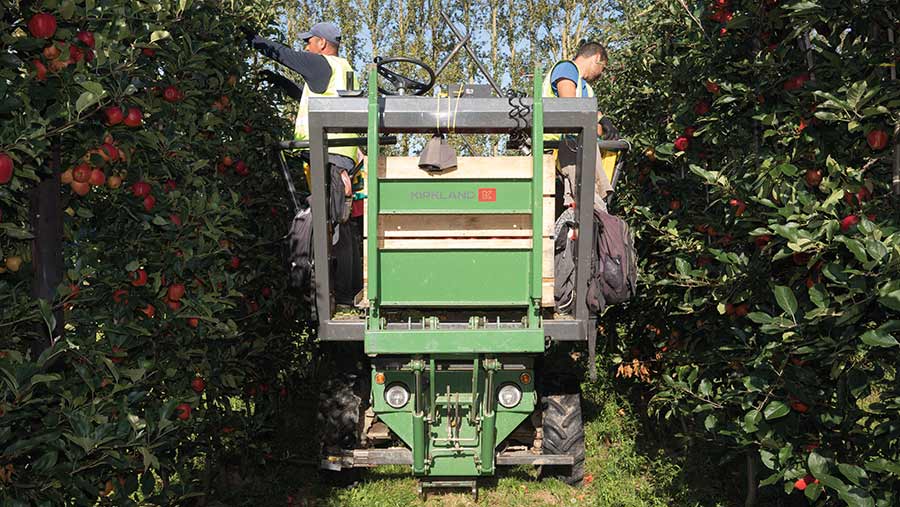NFU Conference 2023: Seasonal farmworkers to be paid living wage from April
 © Tim Scrivener
© Tim Scrivener Farmworkers recruited under the UK government’s Seasonal Worker Scheme (SWS) this year will be paid in line with the National Living Wage (NLW).
Speaking at the NFU Conference in Birmingham on Monday 21 February, Defra farming minister Mark Spencer said temporary workers who come to the UK to pick and pack crops would be paid the NLW from 1 April, which is £10.42/per hour.
“That’s the decent thing to do – and I think it is vital that we all stick to it,” said Mr Spencer.
See also: Report shows horticulture sector on a knife edge
NFU Horticulture and Potatoes Board chairman Martin Emmett said later in a breakout session at the conference that the announcement at least provided clarity for the sector and allayed fears that the Home Office would require horticulture businesses by law to pay seasonal workers a premium wage above the NLW.
Some 45,000 migrant workers are expected to be recruited this year under temporary and short-term contracts up to six months long to travel to the UK to work in the horticulture sector.
The Home Office also retains the option to increase the number of visas by 10,000, depending on demand.
“We have made an initial 45,000 visas available for seasonal workers to travel to the UK for up to six months – that’s 15,000 more than last year,” Mr Spencer told delegates.
“With of course, the possibility of 10,000 more, if we can show that they’re needed, and if we are able to look after those people properly while they’re here, give them a minimum of 32 hours of work every week,”
NFU president Minette Batters praised Mr Spencer for listening to farmers’ concerns and widening the scheme – an uplift of 15,000 visas compared to 2022.
Last year, visas were only granted to seasonal workers under the SWS if businesses committed to pay them the minimum wage of £10.10/hour.
Increased labour costs as well as substantial price rises for fuel, gas, electricity, and fertiliser, driven by the Ukraine war, are hitting horticulture businesses hard.
Labour Party stance
Addressing the conference later, Labour Party leader Keir Starmer, said the days of cheap labour which we have had for many years were “probably over”.
The industry would need to work together to find a way forward, he added.
In the short term, if it wins power, a Labour government would adopt a “practical and pragmatic approach” to ensure farmers get the workers they need, Sir Keir said.
Technology would also have a role to play in the future to reduce the industry’s reliance on labour, he added.
NFU president Minette Batters said it was important that the farming industry “was not seen as a low-wage sector”.
